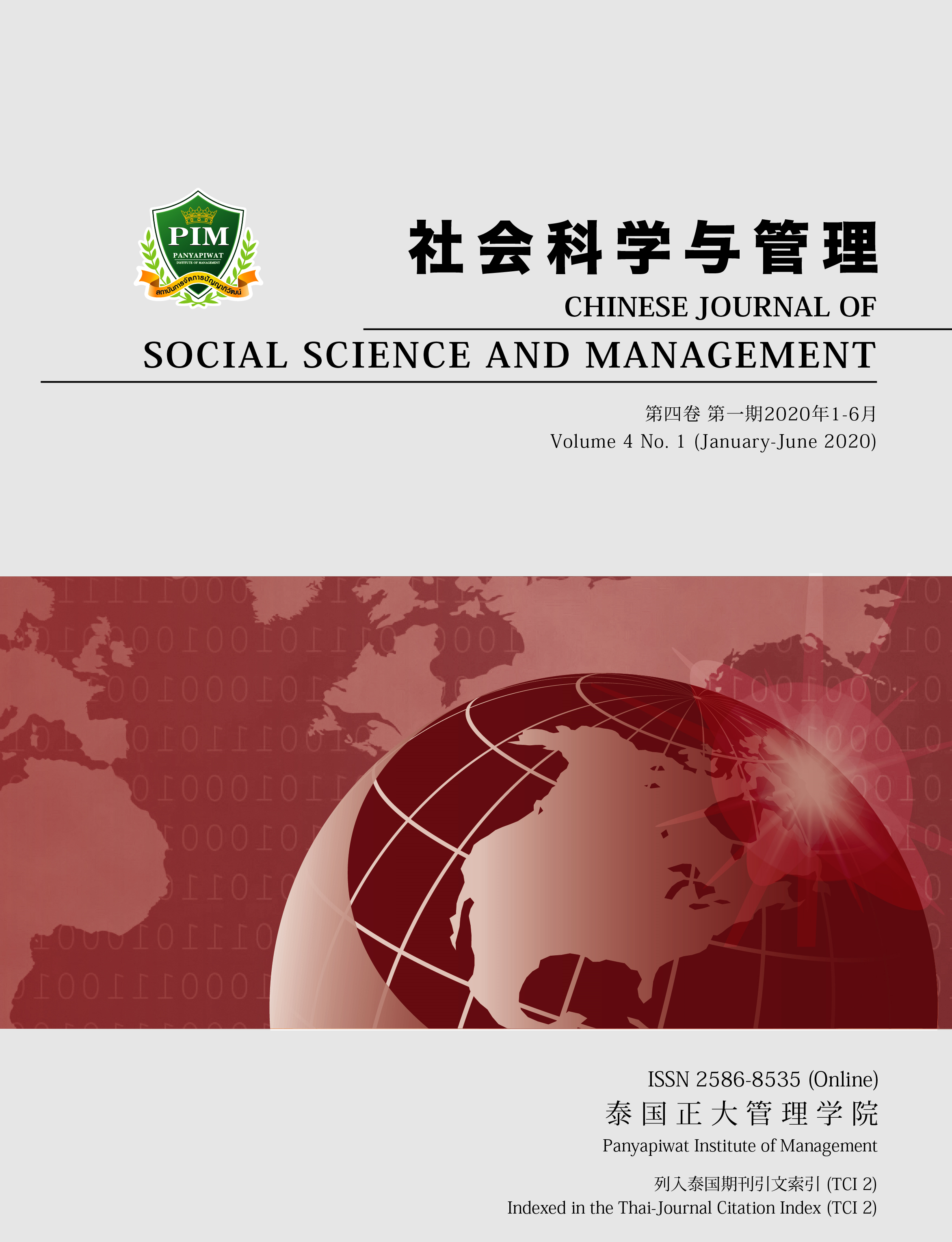THE INFLUENCING FACTORS ON INNOVATIVE TEAM EFFECTIVENESS FROM THE PERSPECTIVE OF COLLABORATION
Main Article Content
Abstract
Abstract
Innovation is the foundation of an organization's survival and continuous development, and the effectiveness of the innovation team as the main body of the research and development process has a significant impact on innovation. Based on the theory of collaboration, this paper focuses on the exploration of the effectiveness factors of enterprise innovation teams. Through a three-step logical system analysis framework implemented to analyze the typical business enterprise innovation team development case, combined with the field research of many innovation teams in the high-tech area, comprehensive analysis methods were used to extract a three-dimensional collaborative innovation mechanism for explaining the innovation team’s achievement of effective innovation and the key factors influencing it, conduct quantitative analysis and provide case support. Subsequently, with more than 40 representative enterprises in Guiyang Hi-tech National Economic Development Zone as the research object, through a questionnaire survey and empirical analysis, it was found that there are five factors that affect the effectiveness of the research and development project teams: input factors of the environment, operational processes, team performance, multiple team coordination factors, and the influence of the R&D team’s effectiveness on innovation ability. Five hypotheses were proposed, and through the testing, it was concluded that the elements of the project team’s effectiveness of technological innovation have a positive impact on the whole and help to achieve the team’s effectiveness as a result of the key factors that affect innovation, and based on this, suggestions that management can use to improve the effectiveness of enterprise innovation team were put forward.
Article Details
Chinese Journal of Social Science and Management Editorial Division
The Office of Research and Development, Panyapiwat Institute of Management
85/1 Moo 2, Chaengwattana Rd., Bang Talat, Pakkred, Nonthaburi 11120, Thailand
Tel. 02 855 01048 E-mail: cjssm@pim.ac.th
References
Boehm, B. W. (1987). Improving Software Productivity. IEEE, Computer, 20(9), 43-57.
Brooks, F. P. (1995). Mythical Man-Month: Essays on Software Engineering. Addison Wesley.
Campion, M. A., Papper, E. M. & Higgs, A. C. (1996). Relations between Work Group Characteristics and Effectiveness: Implications for Designing Effective Work Groups. Personnel Psychology, 15(4), 823-850.
Dutoit, A. H. & Bruegge, B. (1998). Communication Metrics for Software Development. IEEE Transitions on software engineering, 24(8), 615-628.
Ewusi-Mensah, K. & Przasanyskid, Z. (1994). Factors Contributing to the Abandonment of Information System Development Project. Journal of Information Technology, (9), 185-201.
Haken, H. (1987). Synergetic, an introduce (3rd ed.). Berlin, Heidelberg: Springer Super Syn.
Lu, X. & Huang, C. (2004). Effectively Identify Project Team Performance Factors. Techno economics & Management Research, 17(5), 82-83. [in Chinese]
Paris, C. R., Salas, E. & Cannon-Bowers, J. A. (2000). Teamwork in multi-person systems: a review and analysis. Ergonomics, 8(5), 1052-1075.
Shi, B. M. (2009). Research on Enterprise Collaborative Knowledge Management. Jilin: Jilin University. [in Chinese]
Sundstrom, E., Meuse, K. P. & Futrell, D. (1990). Work Teams: Applications and Effectiveness. American psychologist, 45(2), 120-133.
Zeng, C. Y., Yuan, P. Y. & Gao, Li. (2011). Effectiveness Evaluation of Construction Project Management Team based on Grey Clustering. Journal of Qingdao University of Technology, 32(6), 30-35. [in Chinese]
Zhang, X. & Wang, C. (1997). New Progress in Group Performance and Team Effectiveness Research. Chinese Journal of Applied Psychology, (2), 58-64. [in Chinese]
Zhao, B., Yan, J. J. & Hu, C. (2018). Research on the Effect of Team Cross-border Activities on Team Effectiveness. Science and Technology and Industry, 18(3), 104-109. [in Chinese]


